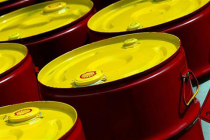

ENERGY
Civilisation has been transformed through a number of Ages starting with the stone age, copper and bronze, iron and the industrial age. The industrial age has only been made possible by the discovery, use and application of fossil fuels, starting with coal and then oil and gas. The present age is so dependent upon fossil fuel that it could reasonably be called the Energy Age. Our present and future consumption of energy is a matter of much debate and especially how we will satisfy demand.

Maintaining energy supply will be one of the biggest concerns over the coming 10 years or so. The high price of oil and its impact on electricity prices and transport costs makes the affordability of future energy supplies uncertain. What types of energy sources will be in short supply and consequently expensive? How long can we justify burning valuable resources like gas and oil when they have more important uses in the pharmaceutical, agriculture and chemical industries?
Debate about whether the oil topping point will occur in 3 years or 30 makes investment decisions difficult. What type of heating system or plant to buy now is not just a difficult decision for industry but for domestic users too. I am currently deliberating whether to install a new oil boiler or a gas one; or should I be considering one that burns wood pellets? Once the topping point happens, I reckon people will suddenly realise that oil IS running out and there will be a panic as people try to find alternatives.

Renewable energy sources such as wind, wave and solar all have their critics and advocates. At least wave and solar are reasonably predictable and alternative arrangements can be made when tides are slack or it is night-time. Wind power, while cheaper to obtain, is much less predictable and substantial spinning reserve is required to take over in the event that the wind drops. Hydro-electric generation capacity can be used to provide virtually immediate energy but will last only perhaps 2-6 hours, so it's not a sustainable stop-gap in the event there's no wind at all.
While nuclear fission seems to be the most obvious immediate saviour, albeit expensive to build and decommission, the availability of nuclear fuel is limited. At our current consumption we have about 70 years of uranium left. After that, extraction from seawater is prohibitively expensive using today's technologies. Suggestions that we recycle nuclear arms into fuel for power stations has some merit.
Nuclear fusion is not yet a practicable alternative as it is still in a speculative and experimental phase. The first fusion reactors are trying to fuse deuterium with tritium. The second generation reactors, if they can ever be made, will fuse two deuterium atoms giving the incredible output of 100,000kWh per 1g of deuterium.